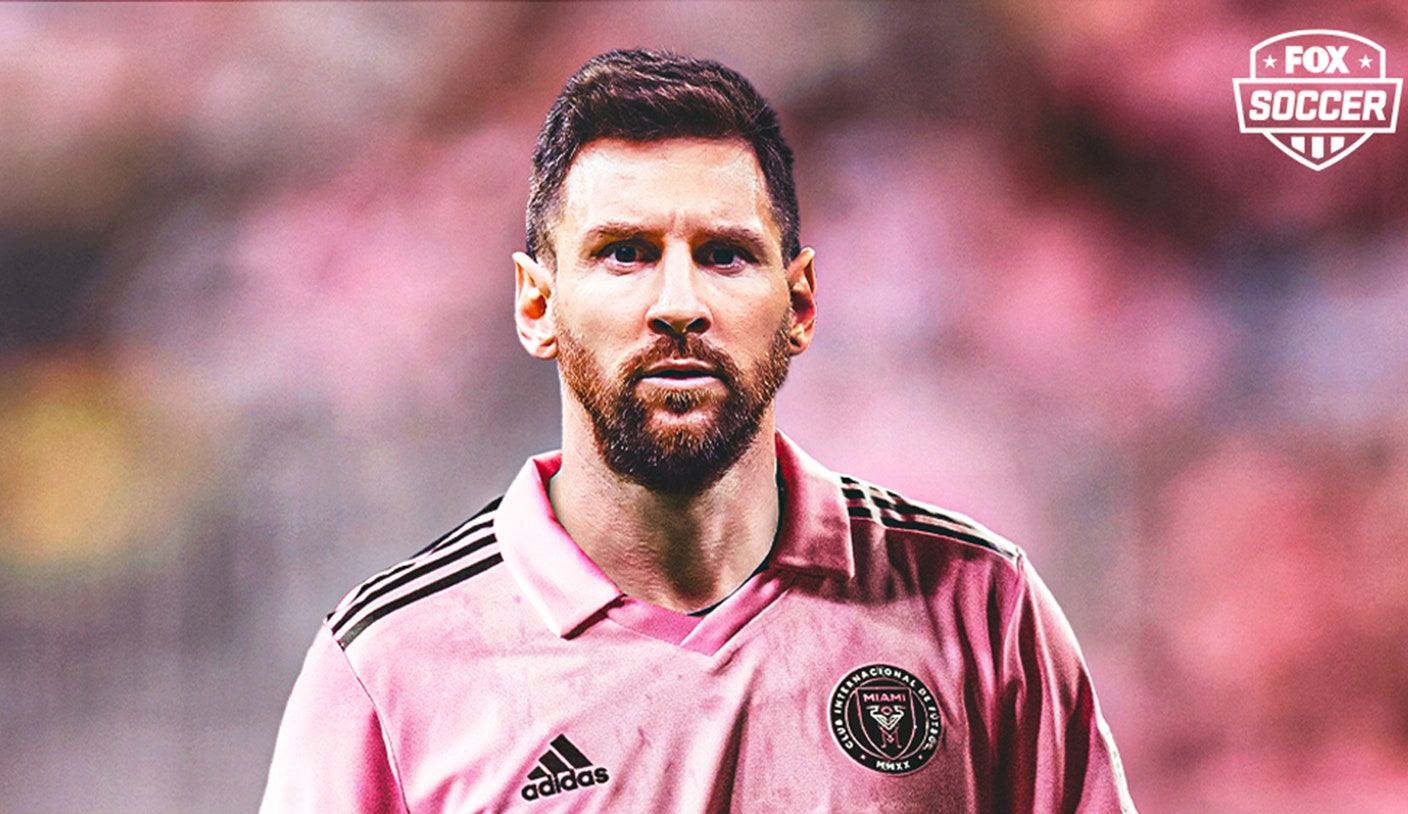[ad_1] Doug McIntyre Soccer Journalist Lionel Messi, the GOAT, has apparently chosen the next and likely last destination of his otherworldly cl
[ad_1]
Lionel Messi, the GOAT, has apparently chosen the next and likely last destination of his otherworldly club career, and it’s Inter Miami.
That was the word Wednesday from Guillem Balagué, a highly credible and well-connected Barcelona-based journalist who has covered Messi for more than 20 years. The news comes after an in-depth report hours earlier from The Athletic that laid out how the deal would be structured if it happened, and even when exactly Messi might make his debut for the Major League Soccer club.
Hours before that, a source told FOX Sports that the initial rumblings in Spanish-language media were more than mere rumors. Then, finally, Messi announced it himself in an interview with SPORT and Mundo Deportivo.
This is actually happening.
[Lionel Messi is joining MLS club Inter Miami on free transfer]
Messi didn’t want to leave Barcelona two years ago. But after the dire financial situation of the only professional club he’d ever known prevented him from extending his contract, the Argentine superstar reluctantly inked a two-year pact with Paris Saint-Germain — a commitment that ends this month.
Messi cemented his legacy as the greatest player in history while at PSG. Winning the World Cup will do that. That status also limited his options. Given his age (Messi turns 36 this month) and stratospheric salary, few clubs could realistically consider recruiting him. Barcelona was the notable exception; Barça manager Xavier “Xavi” Hernández made no secret of his desire for a reunion with his former teammate and close friend.
That storybook return is what Messi coveted, too. Once the same money problems that sealed Messi’s departure conspired to prevent it from happening, though, there was only once place that made sense for the living legend and his young family to go: South Florida.
Sure, Messi could’ve taken the reported $600 million-plus annually on offer from Al Hilal and joined Cristiano Ronaldo in Saudi Arabia’s top league. Yet despite the ungodly sum on the table, he always seemed less likely to follow his longtime rival than to further differentiate himself from Ronaldo by choosing a different path.
Both Balagué and The Athletic reported that Messi’s agreement with Inter Miami is being brokered with help from corporate behemoths Adidas and Apple, MLS’s two biggest strategic partners. MLS’s global visibility was already on the rise. The sponsorship opportunities will be endless for Messi in North America, where Pele, widely regarded Messi’s predecessor as the GOAT, was a pitchman for decades after his playing career was finished.
[How Pelé brought the beautiful game to the United States]
Miami is the better option for the Argentine’s Spanish-speaking family and from a soccer point of view, too.
There will be instant familiarity if Tata Martino, Messi’s compatriot and his former coach with both Barcelona and the national team, succeeds the recently fired Phil Neville as Miami’s coach, as is expected. While MLS’s level of play still lags behind Europe’s top five leagues, it’s improving steadily. The American and Canadian circuit sent more players to last year’s World Cup in Qatar than any league outside the top divisions in England, France, Germany, Italy or Spain.
Messi’s aiming to keep playing for the Albiceleste through the 2024 Copa America and possibly also the 2026 World Cup, both of which will be hosted or co-hosted in the U.S. The quality in MLS is high enough not to threaten those ambitions.
For MLS, landing Messi is an unprecedented triumph. Not since David Beckham left Real Madrid for the LA Galaxy in 2007 has the domestic league lured a global icon capable of making such a splash both at home and overseas. Messi promises to be even more impactful.
There’s a direct line between Beckham’s signing and Messi’s. Beckham is one of three-year-old Inter Miami’s minority owners, his original agreement with MLS containing a clause that allowed him to buy into an expansion team at a cut-rate price. While Beckham forever changed MLS’s trajectory, with the league more than doubling in size since in the 16 years since his arrival, Messi can amplify the exposure of MLS globally in a way that simply wasn’t possible in the mid to late 2000s.
MLS is a far more mature operation now than it was then. Adding Messi instantly takes the league to a different level. It’s not just that stadiums will sell out in every city he visits, or that hot-pink Inter Miami shirts emblazoned with his famous No. 10 will become ubiquitous in short order. In the first year of a decade-long, $2.5-billion global media rights deal with Apple TV, MLS’s product now boasts perhaps the only person whose mere presence alone is capable of single-handedly driving a massive increase in subscriptions around the world. At home, Messi’s face will be everywhere in the lead-up to 2026 — and long after.
Add it all up, and it’s not that hard to understand why Messi has apparently decided to end his unparalleled playing days in Miami, in MLS. It’s simply the place that makes the most sense in the end.
Doug McIntyre is a soccer writer for FOX Sports. Before joining FOX Sports in 2021, he was a staff writer with ESPN and Yahoo Sports and he has covered United States men’s and women’s national teams at multiple FIFA World Cups. Follow him on Twitter @ByDougMcIntyre.

Get more from Lionel Messi Follow your favorites to get information about games, news and more
[ad_2]
Source link



COMMENTS